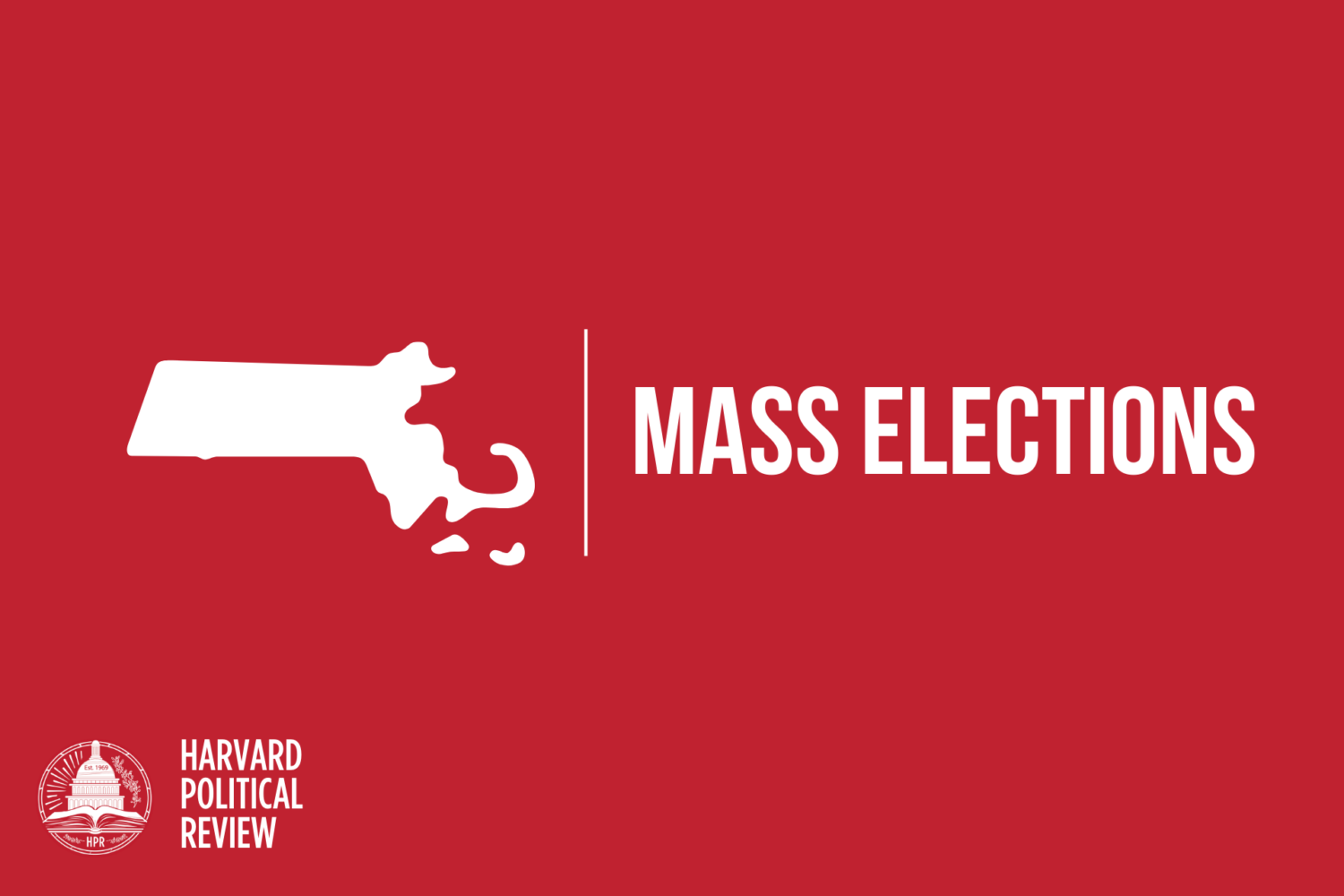This article is a part of the HPR Massachusetts Election Guide and represents the independent perspective of the author.
For decades, Massachusetts politics has staunchly remained an old boys club. Despite its reputation as an overwhelmingly liberal state, only nine women have ever held constitutional office, and Massachusetts has yet to elect a female governor or Speaker of the House of Representatives. The state Legislature has been dominated by men since its founding, currently standing as the state with the 30th smallest proportion of women in the legislature, falling behind every other New England state as well as other states with more conservative reputations, such as Georgia, Kansas, and Idaho.
In the past decade, women have been making significant gains in Massachusetts politics, with Elizabeth Warren’s Senate win in 2012, Ayanna Pressley’s 2018 congressional win, and Michelle Wu’s position as the first woman to be elected mayor of Boston in 2021. This year, however, women have swept the statewide ballot. Democratic women won five out of the six statewide primary contests, and a historic number of people of color are projected to win seats in the State House.
Commentators have been quick to declare the historic number of women on the ballot for the 2022 election cycle as a win for Massachusetts women. While we might soon see a change in the demographics of our elected officials, this trend alone will not fix the problems within the Massachusetts Legislature. More steps need to be taken to guarantee not just representation, but a working democracy for everyone.
Women’s gains in Massachusetts could be demonstrative of a national trend toward female candidates, with this election cycle breaking records for the number of female gubernatorial candidates. After the overturning of Roe v. Wade, many states saw an upsurge in the number of registered female voters, and some suggest that the slew of women on the Massachusetts ballot has been backed by similarly mobilized female voters, moved to political action by recent attacks on women’s rights.
However, the new number of women in the running for Massachusetts statewide offices has not been reflected in the races for seats in the state Legislature. This term, women held 31% of the Legislature’s 200 seats, even though they account for 51.5% of the Massachusetts population according to the 2020 Census. These numbers represent a small increase from last term, when women held less than 29% of seats.
Not just women, but people of color have been historically underrepresented in the Massachusetts Legislature. As of 2020, 13% of state legislators were people of color, despite people of color making up 29% of Massachusetts’ population.
In an effort to empower voters of color, the 2021 decennial redistricting process created four new incumbent-free majority-minority districts and increased the total number of majority-minority districts by 13. In each of the four newly drawn districts with no incumbent, a woman of color was chosen as the Democratic nominee. Depending on November’s general election results, the number of Black and Latino legislators could increase from 17 to at least 24.
This increase of both women and people of color in Massachusetts political offices is historic, and signifies a significant shift in the makeup of the Legislature. However, we must not forget that women and people of color continue to be underrepresented, and that increased representation is not evidence that the underlying problems have been fixed.
The historic lack of representation for marginalized communities in Massachusetts is in part symptomatic of a systemic lack of electoral competition and transparency in the Legislature. This election cycle, nearly two-thirds of the general election races for the state Legislature will be uncontested, including 109 of 160 state House districts and 18 of 40 Senate districts.
Some newcomers who will bring more diversity to Beacon Hill, including women and people of color, benefit from this lack of electoral challenge. But the lack of competition is also indicative of a larger incumbent bias that, for decades, has kept the old political guard in power and allowed the majority of Massachusetts legislators to operate under the assumption that they will be re-elected.
This lack of electoral challenge accountability is compounded by severe gaps in transparency in the state House. On Beacon Hill, much of the most important legislating happens in committees or joint committees. Under the current rules, only representatives who vote “no” in House committee votes will be named, with anonymity maintained for representatives who vote “yes” or abstain from voting. This policy is already an improvement from the original rule, which did not give constituents access to any committee votes, regardless of how their representative voted. Regardless, the current lack of transparency makes it harder for voters to hold their representatives accountable, and has famously allowed for contentious policies to move forward behind closed doors.
Massachusetts’ democratic system is broken, and it’s going to take more than electing a few more women and people of color into office during this election cycle to fix it. As long as marginalized communities do not have the power to hold their representatives accountable, Massachusetts can never claim to be a democracy that works for everyone.
Image by Allaura Osborne created for use by the Harvard Political Review.



